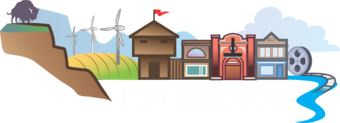Operational Budget
Budgeting for a Town is similar to budgeting for a household. The Town has expenses to pay in order to operate the municipality (wages, insurance, utilities, supplies. contracted services, etc.) and revenues to offset these costs (property taxes, land sales, grants, utility fees, recreation fees, etc.).
Just like a household, the Town needs to make sure that the revenues are equal to, or more, than the expenses. Municipalities in Alberta are legislated to have an annual balanced budget under the Municipal Government Act (MGA).
Council is given an annual draft operating budget by Administration in the fall with costs associated with various levels of service. Council reviews and asks questions regarding these departmental budgets and the overall effect on the mill rate and may ask for changes based on their decisions on programs and services to provide in the coming year.
Any shortfall in the operating budget (after all expenses have been reviewed and adjusted) is normally made up by: using savings (reserves) to fund the shortfall or by increasing the mill rates. The mill rate is applied to each property assessment to come up with the property taxes owed to the Town to pay for the costs of running the Town. For more information on assessment and taxation
In the final budget approval, Council has to balance adding services or programs with increasing property taxes or user fees to pay for the cost.
In Fort Macleod, the public has opportunities to be a part of the budget process and is encouraged to attend Council and Committee of the Whole meetings when budgets (both capital and operating) are being discussed.
At any time of the year, if a member of the community wants to give input on the services provided by the Town or capital projects, they can contact the CAO or a member of Town Council with their thoughts.
Capital Budget
Council also makes decisions on capital projects (waterlines, sewer lines, roads, new recreation facilities, new developments, machinery and equipment, etc.). Capital projects are large projects that benefit not only the current property owners of the Town but future generations too. These large projects can be funded by federal or provincial grants, by current revenues (think increasing operating revenues so there is a surplus), or by using savings (also called reserves).
Capital projects can also be financed by taking out debt for all or a portion of the cost and paying interest (just like a household does when it borrows from a bank).
In the final capital budget approval, Council has to balance prioritizing and approving capital items with: increasing property taxes, user fees, or debt, taking out loans or using savings (reserves) to pay for the cost of these projects.
In Fort Macleod, the public has opportunities to be a part of the capital budget process and is encouraged to attend Council and Committee of the Whole meetings when budgets (both capital and operating) are being discussed.
At any time of the year, if a member of the community wants to give input on the services provided by the Town or capital projects, they can contact the CAO or a member of Town Council with their thoughts.


